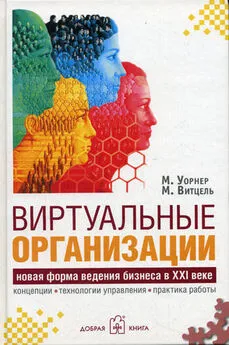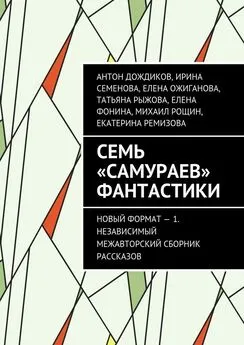Елена Князева - Энактивизм: новая форма конструктивизма в эпистемологии
- Название:Энактивизм: новая форма конструктивизма в эпистемологии
- Автор:
- Жанр:
- Издательство:Литагент «ЦГИ»2598f116-7d73-11e5-a499-0025905a088e
- Год:2014
- Город:Москва, Санкт-Петербург
- ISBN:978-5-98712-192-4
- Рейтинг:
- Избранное:Добавить в избранное
-
Отзывы:
-
Ваша оценка:
Елена Князева - Энактивизм: новая форма конструктивизма в эпистемологии краткое содержание
В монографии рассматривается энактивизм как радикальный концептуальный поворот в неклассической эпистемологии и когнитивной науке. Сознание представляется как активное и интерактивное, отелесненное и ситуационное, его когнитивная активность совершается посредством вдействования в окружающую и познаваемую среду, т. е. энактивирования среды. Прослеживаются историко-философские предпосылки возникновения этих представлений в учениях Дж. Беркли, Д. Юма, И. Канта, А. Бергсона, а также современный вклад в развитие энактивизма Франсиско Варелы, Эвана Томпсона, Алва Ноэ и др. Энактивизм рассматривается как новая форма конструктивизма в эпистемологии, в концептуальных рамках которого получают нетрадиционные решения проблемы сознания и тела, субъекта и объекта познания, связи познания с действием.
Книга адресована специалистам по эпистемологии и философии науки, а также всем интересующимся современными трендами развития философии.
Энактивизм: новая форма конструктивизма в эпистемологии - читать онлайн бесплатно ознакомительный отрывок
Интервал:
Закладка:
154. De Jaegler H., Di Paolo E. Parpicitatory Sense-making. An Enactive Approach to Social Cognition // Phenomenology and Cognitive Sciences. 2007. Vol. 6. P. 485–507.
155. Depraz N. When Transcendental Genesis Encounters the Naturalization Project // Naturalizing Phenomenology. Issues in Contemporary Phenomenology and Cognitive Science. Stanford: Stanford univ. press, 1997. P. 464–483.
156. Depraz N, Varela F. J., Vermersch P. On Becoming Aware. A Pragmatics of Experiencing. Amsterdam etc.: John Benjamins Publishing Company, 2003.
157. Die erfundene Wrklichkeit. Wie wissen wir, was wir zu wissen glauben? / Hrsg. von Paul Watzlawick. München: Piper, 1998. 10. Aufage.
158. Di Paolo E. Extended Life // Topoi. 2009. Vol. 28. P. 9–21.
159. Dormir, Rêver, Mourir. Explorer la conscience avec le Dalaï-Lama. Sous la direction de Francisco Varela. P.: NiL éditions, 1998.
160. Dupuy J.-P. Philosophy and Cognition // Naturalizing Phenomenology. Issues in Contemporary Phenomenology and Cognitive Science. Stanford: Stanford University Press, 1997. P. 539–558.
161. The Dynamical Systems Approach to Cognition. Concepts and Empirical Paradigms Based on Self-organization, Embodiment, and Coordination Dynamics. Singapore: World Scientifc Publishing Co., 2003.
162. Entre le corps et l’esprit. Approache interdisciplinaire du Mind Body Problem / Eds. Feltz B., Lambert D. Liège: Pierre Mardaga éditeur, 1994.
163. Erdi P. Complexity Explained. B.: Springer, 2008.
164. Fadiman J. The Psychedelic Explorer’s Guide: Safe, Therapeutic, and Sacred Journeys. Rochester, Vt.: Park Street Press, 2011.
165. Favareau D. Essential Readings in Biosemiotics: Anthology and Commentary. Heidelberg, etc.: Springer, 2010.
166. Foerster H. von. Das Konstruieren einer Wirklichkeit // Die erfundene Wrklichkeit. Wie wissen wir, was wir zu wissen glauben? München: Piper, 1998.
167. Foerster von H., Pörksen B. Wahrheit ist die Erfndung eines Lügners: Gespräche für Skeptiker. 2. Auf. Heidelberg: Carl-Auer-Systeme Verlag, 1998.
168. Fuchs T., Jaegher de H. Enactive Intersubjectivity: Participatory Sense-making and Mutual Incorporation // Phenomenology and Cognitive Sciences. 2009. Vol. 8, N 4. P. 466.
169. Gallagher S., Zahavi D. The Phenomenological Mind. An Introduction to Philosophy of Mind and Cognitive Science. L., N.Y.: Routledge, 2008.
170. Gardellini L. The Foundations of Radical Constructivism: An Interview with Ernst von Glasersfeld // Foundations of Chemistry. 2006. Vol. 8. P. 177–187.
171. Gelder T. van. What Might Gognition Be, If Not Computation? // The Journal of Philosophy. 1995. Vol. 92. N 7. P. 345–381.
172. Gelder T. van., Port R. F. It’s About Time: An Overview of the Dynamical Approach to Cognition // Mind as Motion. Exploration in the Dynamics of Cognition / Ed. R. F. Port and T. van Gelder. Cambridge: MIT Press, 1995.
173. Gide A. Journal. 1889–1939. P.: Gallimard, 1951.
174. Glasersfeld E. von. Radical Constructivism: A Way of Knowing and Learning. L.: Farmer Press, 1985.
175. Godfrey-Smith P. Complexity and the Function of Mind in Nature. Cambridge: Cambridge University Press, 1996.
176. Hegel G.W.F. Philosophie des Geistes. Sämtliche Werke in 20 Bänden. 10. Band. Stuttgart: Frommanns Verlag, 1929.
177. Heinz von Foerster im Gespräch mit Albert Müller und Karl H.Müller. Rück-und Vorschauen // Konstruktivismus und Kognitionswissenschaft. Kulturelle Wurzeln und Ergebnisse / Hrsg. von Müller A.; Müller K.L. und Stadler F. Wien: Springer, 1997. S. 224–225.
178. Holland J. H. Hidden Order: How Adaptation Builds Complexity. Readings (MA): Addison-Wesley Publishing Company, 1995.
179. Horgan J. The End of Science. Facing the Limits of Knowledge in Twilight of the Scientifc Age. N.Y.: Broadway Book, 1997.
180. Horgan T., Tienson J. A Nonclassical Framework for Cognitive Science // Synthese. 1994. Vol. 101. N 3. P. 305–345.
181. Husserl E. Zur Phänomelogie des inneren Zeitbewusstseins. Gesammelte Werke. Bd. 10. Haag: Martinus Nijhoff, 1966.
182. Hutto D. Wttgenstein and the End of Philosophy. N.Y.: Palgrave MacMillan, 2003.
183. Hutto D. Knowing what? Radical versus conservative enactivism // Phenomenology and the Cognitive Science. 2005. Vol. 4. P. 389–405.
184. Hutto D. Radically Enactive Cognition in Our Grasp // The Hand, an Organ of the Mind – What the Manual Tells the Mental (ebook) / Ed. by Z. Radman. United States: MIT Press, 2011. P. 227–252.
185. James W. The Principles of Psychology. Cambridge (MA), L. (England): Harvard univ. press, 1981.
186. Johnson M. The Body in the Mind: The Bodily Basis of Imagination, Reason, and Meaning, Chicago: Univ. of Chicago press, 1987.
187. Johnson S. P. (Ed.) Neoconstructivism. The New Science of Cognitive Development. Oxford: Oxford Univ. press, 2010.
188. Jung C. G. Über die Psychologie des Unbewussten. Zürich und Stuttgart: Rascher-Verlag, 1943.
189. Kauffman S. At Home in the Universe. The Search for Laws of Self-organization and Complexity. L.: Viking, 1995.
190. Kelly G. A. The Psychology of Personal Constructs. N.Y.: Norton, 1955.
191. Kelso J.A.S . Dynamic Patterns. The Self-organization of Brain and Behavior. Cambridge (MA), L. (England): The MIT Press, 1995.
192. Kiecolt-Glaser J. K., Robles T. F., Heffner K. L., Loving T. J. & Glaser R. Psychooncology and Cancer: Psychoneuroimmunology and Cancer http://annonc.oxfordjournals.org/content/13/suppl 4/165.full.pdf
193. Kosslyn S. M. Image and Mind. Cambridge (MA): Harvard univ. press, 1980.
194. Kull K. Jakob von Uexküll: An Introduction // Semiotica. 2001. Vol. 134. N 1/4. P. 1–59.
195. Lakoff G. Women, Fire, and Dangerous Things. What Categories Reveal about the Mind. Chicago and London: The University of Chicago Press, 1987.
196. Lakoff G., Johnson M. Philosophy in the Flesh. The Embodied Mind and Its Challenge to Western Thought. N.Y.: Basic Books, 1999.
197. Lam L., Shu C.-Q., Bödefeld S. Active Walk and Path Dependent Phenomena in Social Systems // Nonlinear Physics for Beginners / Ed. by Lui Lam. Singapore: World Scientifc, 1998.
198. Laszlo E. The Chaos Point. The World at the Crosscoads. L.: Piatkus, 2012.
199. Legrand D. The Bodily Self: The Sensori-motor Roots of the Pre-refective Selfconsciousness. // Phenomenology and the Cognitive Sciences. 2006. Vol. 5. P. 89–118.
200. Le Moigne J.-L. Le constructivism. T. 1. Des fondements. Paris. ESF éditeur, 1994.
201. Le Moigne J.-L. Le constructivism. T. 1. Des épistemologies. P. ESF éditeur, 1995.
202. Le Moigne J.-L. Les épistemologie constructiviste en progrès // Entre systémique et complexité, chemin faisant… Mélanges en hommage à Jean-Louis Le Moigne. P.: PUF, 1999. P. 290.
203. Lewin K. Werkausgabe. Bd. 4: Feldtheorie. Bern: Hüber; Stuttgart: Klett-Cotta, 1982.
204. Leyland M. L. An Introduction to Some of the Ideas of Humberto Maturana // Journal of Family Therapy. 1988. Vol. 10. P. 357–374.
205. Llinas R. R. I of the Vortex. From Neurons to Self. Cambridge (MA): The MIT press, 2001.
206. Lorenz K. Die Rückseite des Spiegels. Versuch einer Naturgeschichte menschlichen Erkennens. München, Zürich: R. Piper & Co. Verlag, 1973.
207. Luhmann N. Soziale Systeme. Grundriss einer allgemeinen Theorie. Fr.a.M.: Surkamp, 1987.
208. Mare W. de la. Desert Islands. L.: Faber & Faber, 1932.
209. Markoff J. What the Dormouse Said: How the 60s Counterculture Shaped the Personal Computer Industry. New York: Viking Penguin, 2005.
210. Maturana H. R. Stratégies cognitive // LUnité de l’Homme. Invariants biologiques et universeau culturels. P.: Éditions du Seuil, 1974. P. 418–442.
211. Maturana H. R. The Nature of the Laws of Nature // Systems Research and Behavioral Science. 2000. Vol. 17, N 5. P. 459–468.
212. Maturana H. R. Self-consciousness: How? When? Where? // Constructivist Foundations. 2006. Vol. 1. N 3. P. 91–102.
213. Maturana H. R. The Biological Foundations of Virtual Realities and Their Implications for Human Existence // Constructivist Foundations. 2008. Vol. 3., N 2. P. 109–114.
214. Maturana H. R., Varela F. J. Autopoiesis and Cognition. The Realization of the Living. Dordrecht: D. Reidel, 1980.
215. McCulloch W. Embodiments of Mind. Cambridge (MA): The MIT Press, 1965.
216. McGinn C. Can We Solve the Mind-Body Problem? // Philosophy of Mind. L., N.Y.: Routledge, 2003.
217. Menary R. (Ed.) Radical Enactivism: Intentionality, Phenomenology and Narrative. Focus on the Philosophy of Daniel D. Hutto. Amsderdam; Philadelphia: John Benjamins Publishing Company, 2006.
218. Merleau-Ponty M. Phénomenologie de la perception. P.: Gallimard, 1945.
219. Merleau-Ponty M. The Structure of Behavior. Boston: Beacon Press, 1963.
220. Merleau-Ponty M. Le Visible et l’invisible. P.: Gallimard, 1964.
221. Mind as Motion. Exploration in the Dynamics of Cognition / Ed. by R. F. Port and T. van Gelder. Cambridge: The MIT Press, 1995.
222. Mitchell M. Complexity: A Guided Tour. Oxford: Oxford Univ. Press, 2009.
223. Morin E. La Paradigme perdu: la nature humaine. P.: Seuil, 1973.
224. Morin E. La Besoin d‘une pensée complexe // Représentation et Complexité. P.: Educam (Unesco) ISSC, 1997.
225. Morin E. Mes Démons. P.: Stock, 1994.
226. Morin E. La tête bien faite. Repenser la réforme ↔ Réformer la pensée. P.: Editions du Seuil, 1999.
227. Morin E. Les Sept Savoirs nécessaires à l’éducation du futur. P.: UNESCO, 1999.
228. Morin E. Le complexus, ce qui est tissé ensemble // Réda Benkirane. La Complexité, vertiges et promesses. P.: Le Pommier, 2002.
229. Neisser U. Cognition and Reality. Principles and Implications of Cognitive Psychology. San Francisco: W. H. Freeman & Co, 1976.
230. Neuhäuser G. Konstruktiver Realismus. Jean Piajets naturalistische Erkenntnistheorie. Würzburg: Verlag Königshausen & Neumann GmbH, 2003.
231. Noë A. Action in Perception. Cambridge: The MIT Press, 2004.
232. Noë A. Out of our Heads: Why You are Not Your Brain, and Other Lessons from the Biology of Cognition. Farrar, Straus & Giroux, 2010.
233. Oeser E. Psychozoikum: Evolution und Mechanismus der menschlichen Erkenntnisfähigkeit. Berlin; Hamburg: Parey 1987.
234. Paivio A. Imagery and Verbal Processes. NY: Holt, Rinehard and Winston, 1971.
235. Pask G. Conversation, Cognition and Learning. A Cybernetic Theory and Methodology. Amsterdam: Elsevier, 1975.
236. Pask G. Conversation Theory. Applications in Education and Epistemology Amsterdam: Elsevier, 1976.
237. Piaget J. La construction du réel chez l’enfant. P.: Delachaux et Niestlé, 1937.
238. Pink D. A Whole New Mind: Moving from the Information Age to the Conceptual Age. Riverhead Book, 2005.
239. Pinker S. How the Mind Works. NY; L.: WW Norton & Company, 1997.
Читать дальшеИнтервал:
Закладка:









